THEY COME FROM HAVANA. THEY GREW UP IN THEIR NEIGHBOURHOODS (LUGARNO, POGOLOTTI) AND TODAY THEIR NAMES HAVE SHAPED THE HISTORY OF CUBAN CONTEMPORARY ART OVER THE PAST FIVE DECADES. MANUEL MENDIVE (1944), JOSÉ BEDIA (1959), RENÉ PEÑA (1957) AND JUAN ROBERTO DIAGO (1971) BELONG TO THREE GENERATIONS OF ARTISTS DRIVEN BY THE SAME DESIRE TO SEARCH, TO UNRAVEL AN ARCHAIC BRUTALLY SEQUESTERED IDENTITY, A FORGOTTEN PAST AND ORIGINS LEADING TO THEM, ONLY RECOGNISABLE IN THE DNA OF THEIR RITES AND RITUALS.
BEDIA’S WORK, NOW INTERNATIONALLY RENOWNED, WENT ON TO DEVELOP A COMPLEX “COSMOGRAPHY” (ORLANDO HERNÁNDEZ) IN WHICH PRIMITIVE EXPRESSION REVEALED A RESOLUTELY CONTEMPORARY NARRATIVE.
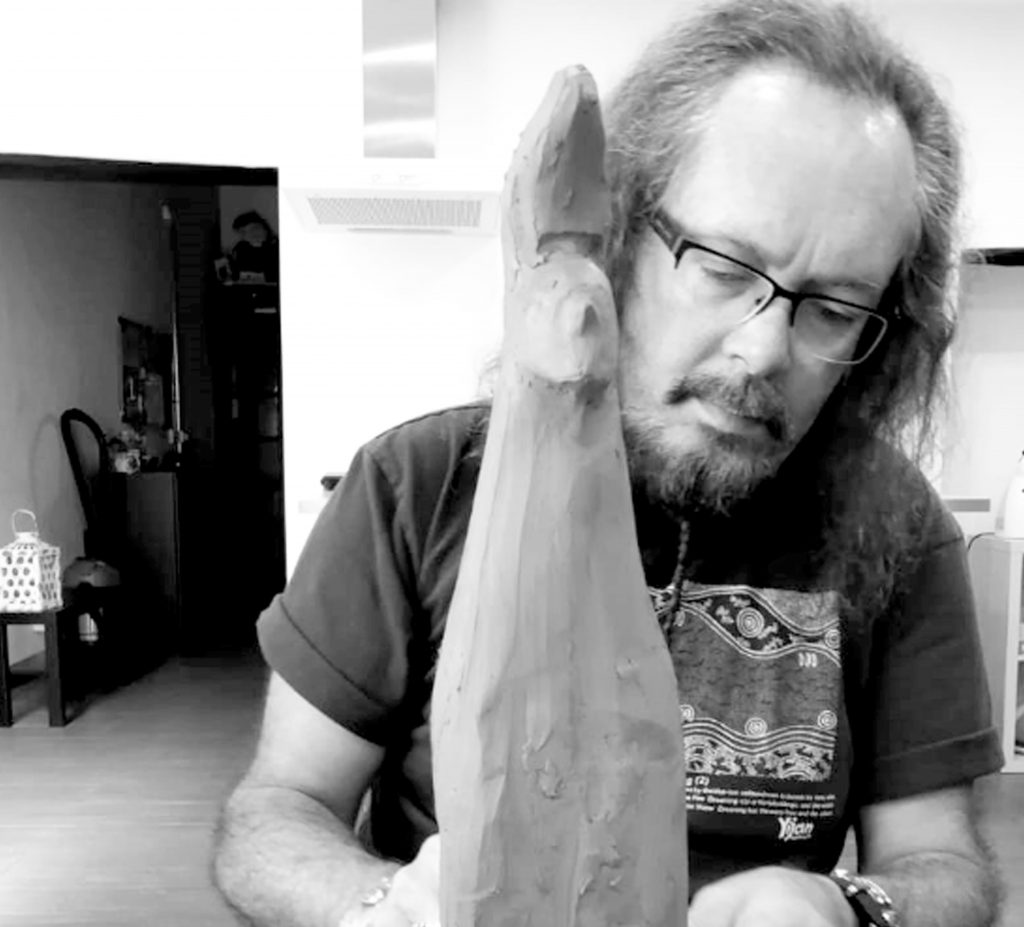
JOSÉ BEDIA (La Habana, 1959)
In a very low voice, almost as if whispering, the Cuban-American artist José Bedia has been committed—for years—to rescuing orality, leaving his mark by plotting a map across his visual work, grounded in the language of drawing and painting, a symbolic map of the oral transmission of knowledge, which is a constant feature that has always been among the utopian and methodological premises of his work. Bedia builds his work upon an operation of archaeology and restoration of his anthropological studies on how ‘primalist cultures’ survive nowadays, in conjunction with how popular cultures survive the civilisational advance of social progress as an homogeneising machinery. In this regard, the artist is a recorder who notes down endemic marks that tend to disappear from the strata that make up our voracious omnivorous cultures. These transatlantic cultures are permeated by Africanity, Hispanicness and Aboriginality—a mixture in perpetual mutation, in an infinite movement of self-definition.
“DIAGO’S WORK,” WRITES ANA BELÉN SEVILLANO, “PRESERVES INTACT THE GAZE FROM WHICH THE WORK IS CREATED: THE GAZE OF THE CUBAN BLACK INDIVIDUAL, WHICH IMPRESSES UPON HIM NOT ONLY A SPECIFIC PERSPECTIVE, BUT CONVERGES ON THAT WHICH IS SIGNIFICANT TO HIM,” THUS CONTRIBUTING TO “THE DEVELOPMENT OF A SPECIFICALLY BLACK AESTHETIC.” NEVERTHELESS, JUAN ROBERTO DIAGO’S WORK IS BASED, AS HE HIMSELF ACKNOWLEDGES, ON “AN ACADEMIC AND WESTERN ARTISTIC TRADITION THAT I HAVE ENDEAVOURED TO PERMEATE WITH THAT GUST OF WIND THAT IS PRESENT IN THE VERY ESSENCE OF MY LIFE.” THE RECENT EXHIBITION “DIAGO: THE PASTS OF THIS AFRO-CUBAN PRESENT, ORGANISED BY THE HUTCHINS CENTER FOR AFRICAN AND AFRICAN AMERICAN RESEARCH AT HARVARD UNIVERSITY, AFFIRMS HIS STATUS AS ONE OF THE MOST SOLID AND GENUINE CREATORS OF CUBAN ART SO FAR THIS CENTURY.
JUAN ROBERTO DIAGO (La Habana, 1971)
Roberto Diago is one of the most recognized contemporary artists in Cuba. Born in 1971, he trained at the San Alejandro Academy in 1990 and works as Consultant Professor at the Higher Institute of Art, Havana.
The everyday is the material of his work, he makes use of the materials that the day to day offers him and gives them a symbolic charge in an act of cultural resistance. His work reflects his interest in the legacy of African culture brought by slaves to Cuba, and how it is presented in today’s Cuban society.
He has recently had important exhibitions such as his solo at the Lowe Museum in Miami. A regular figure in the best art fairs in the United States and Latin America, he has also shown his work at fairs such as ARCO Madrid or FIAC Paris, as well as at the Venice, Havana and Dakar biennials. He has work in the National Museum of Havana, Deste Foundation in Athens, Brownstone Foundation in Paris, CIFO Collection in Florida, Boston Fine Arts Museum or Jorge M. Pérez Museum in Miami, among many other internationally renowned collections.
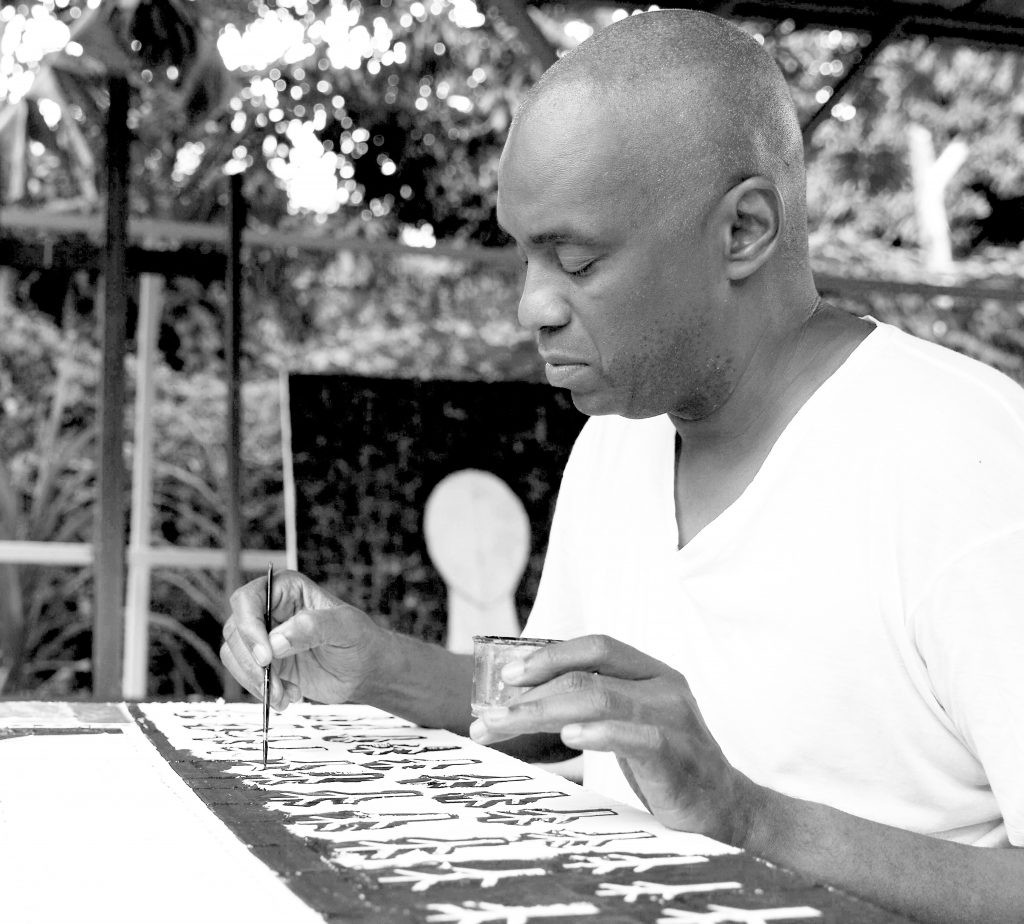
MANUEL MENDIVE SOON CAME TO UNDERSTAND THAT AFRICA PROVIDED, AS WIFREDO LAM BELIEVED, THE SPIRITUAL MUD THROUGH WHICH NEW CUBAN ART WOULD BEAR FRUIT, PAVING THE WAY FOR A “RE-READING OF THE ANCESTRAL MEMORY THAT USHERED IN POSTMODERNITY IN CUBAN VISUAL ARTS” (GUILLERMINA RAMOS)
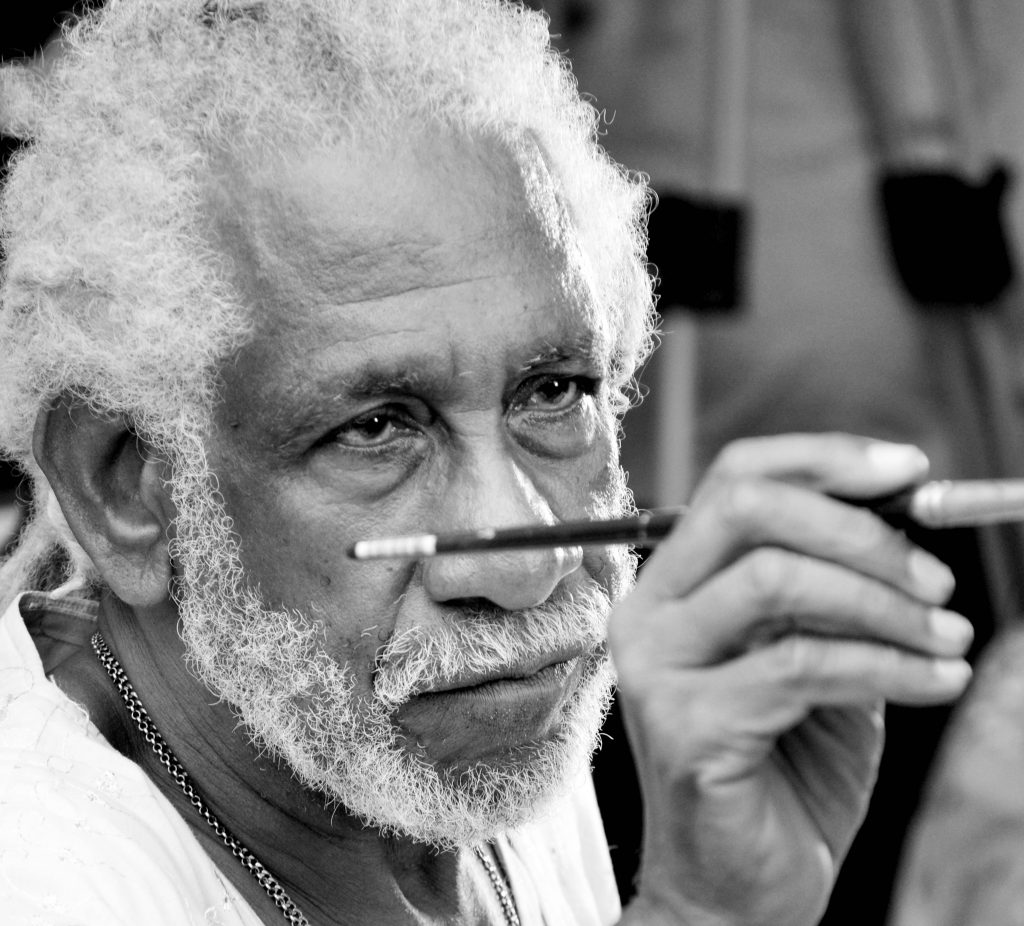
MANUEL MENDIVE (La Habana, 1944)
The works of Manuel Mendive, capture the breath of the manifestations and the ritual expression that have been a distinguishing trait of modern Cuban art since W. Lam.
As an almost telluric emanation from his studio-shelter in Monte Blanco, his work has always been the voice of nature pierced by time in the form of primal reminiscences, viewings of a metamorphic, transubstantiated universe where beings, animals, plants, objects, landscapes… have turned into a wholeness of interdependent geneses that give shape to his unquestionable, personal poetics.
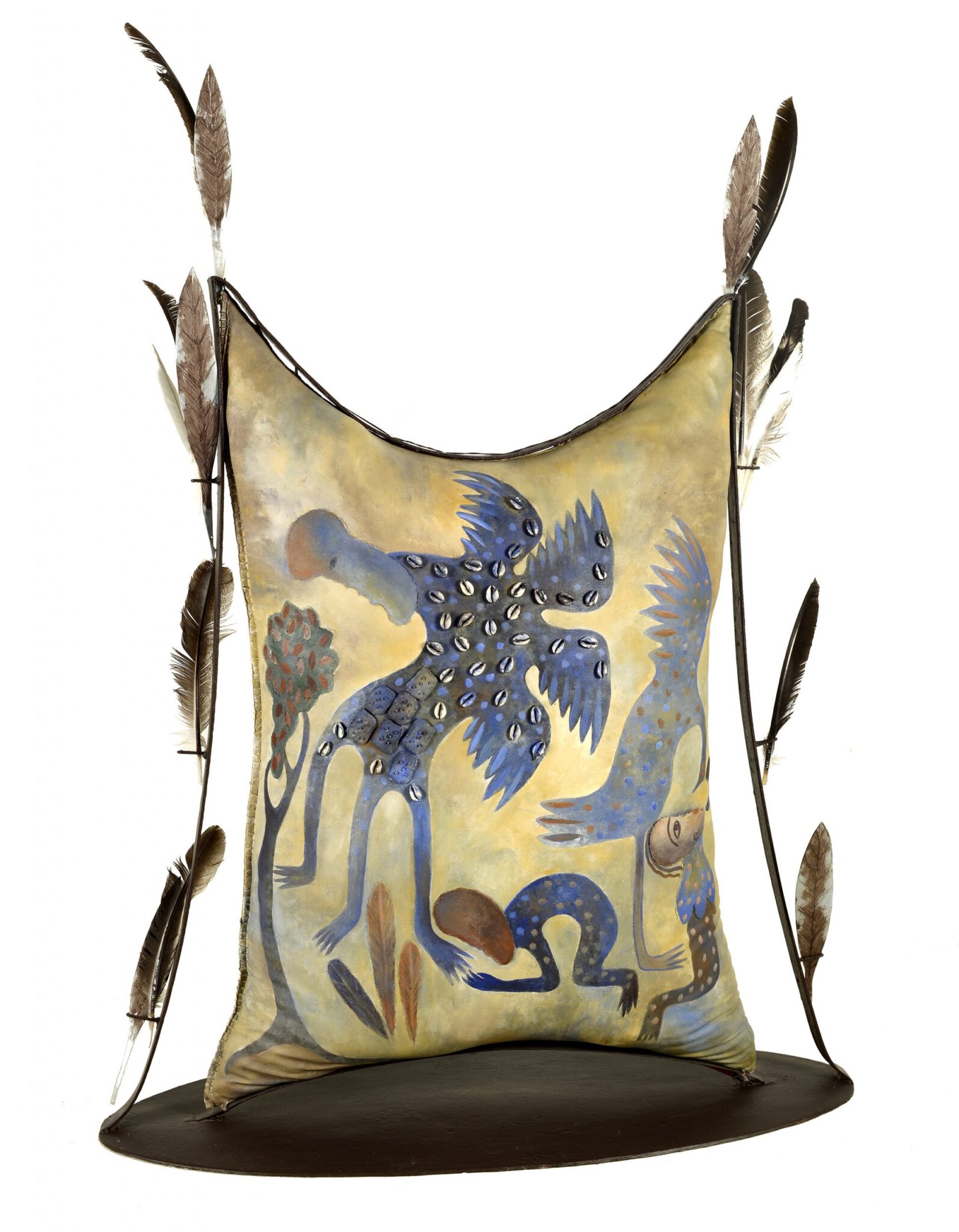
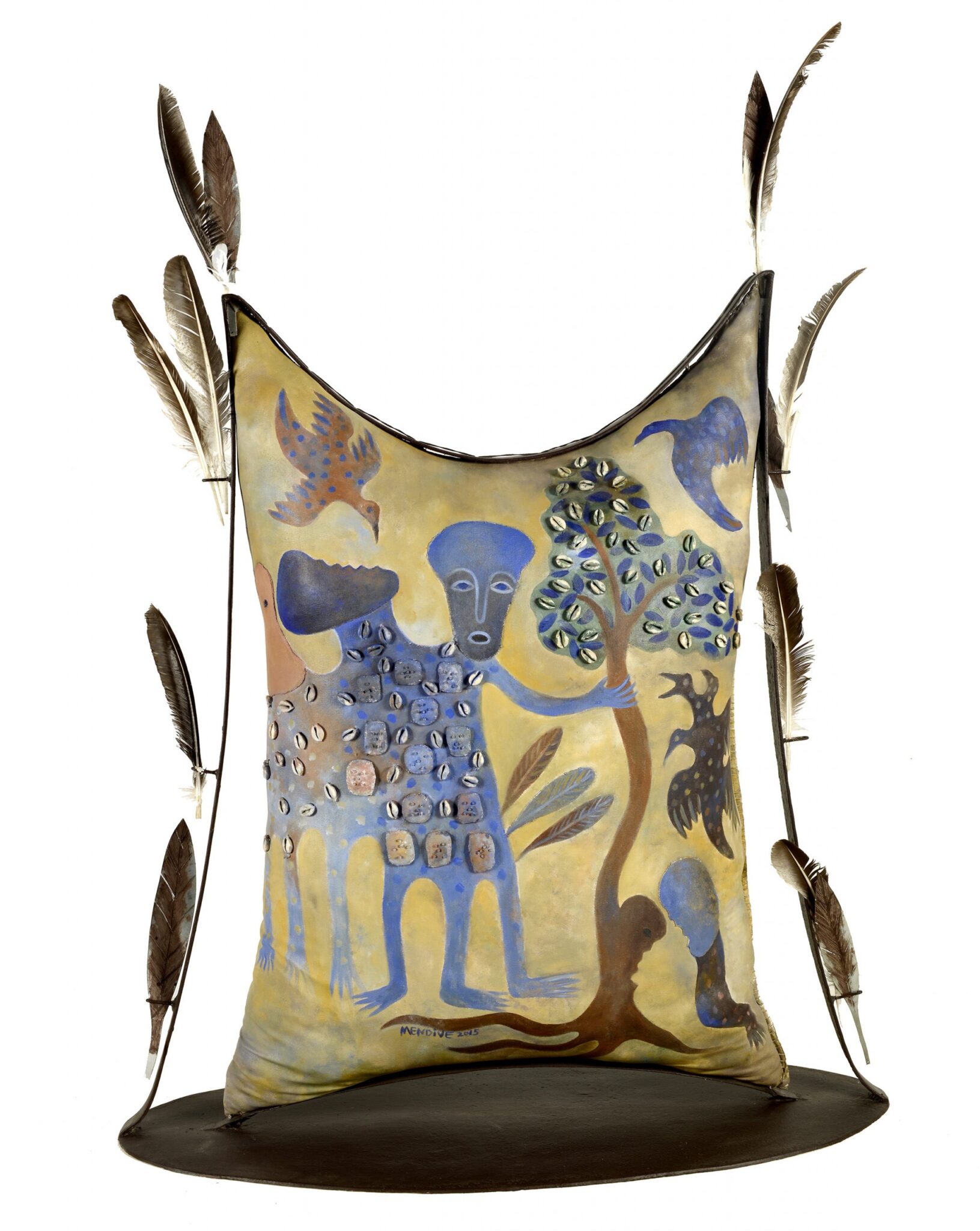
Manuel Mendive
Energías para el amor y la bondad, 2015
WHEN THE SUBJECT OF RENE PEÑA’S PHOTOGRAPHY BECAME HIMSELF, HE ENDED UP “CALLING CHECK MATE ON THE REPRESENTATIVE PARADIGMS OF THE BLACK MAN IN CUBA, AND PAVING THE WAY TO A GEOGRAPHY OF HIS OWN BODY, NOW UNDERSTOOD AS RACE” (OMAR-PASCUAL CASTILLO). IN RENÉ PEÑA’S WORK, EVERYTHING THAT HAPPENS, WHETHER IT IS ENIGMATIC, ACTIVIST, HUMOROUS, SATIRICAL, SENSUAL OR TOPOGRAPHICAL, CONTAINS PEÑA HIMSELF. ALTHOUGH IF WE WERE TO BELIEVE HIM, “…I NEVER SPEAK OF MYSELF, BUT I USE MYSELF TO TALK ABOUT OTHERS.”
René Peña
Susurro, 2010
RENÉ PEÑA (La Habana, 1957)
He is possibly the most important photographer in Cuba today. Self-taught, he is a member of the Union of Writers and Artists of Cuba and of the Advisory Council of the Photo Library of Cuba. He currently lives and works in Havana.
Peña was never interested in photojournalism, even when he rejected the notion of purely aesthetic photography. From his first solo shows in the early 1990s it was apparent that he was searching for some kind of deeper truth.
The central issue of his photographic series is the relationship established between individuals and institutions (family, education, political parties, religion …).
René Peña has participated in important events such as the biennials in Los Angeles, Havana or Curitiba. With exhibitions at the Wifre do Lam Art Center in Havana or at the CAAM (Centro Atlántico de Arte Moderno) in Las Palmas.
His work can be found in numerous collections around the world, including the National Museum of Havana, Houston Museum of Fine Arts, Throckmorton Fine Arts in New York or the Faber Collection in Florida.
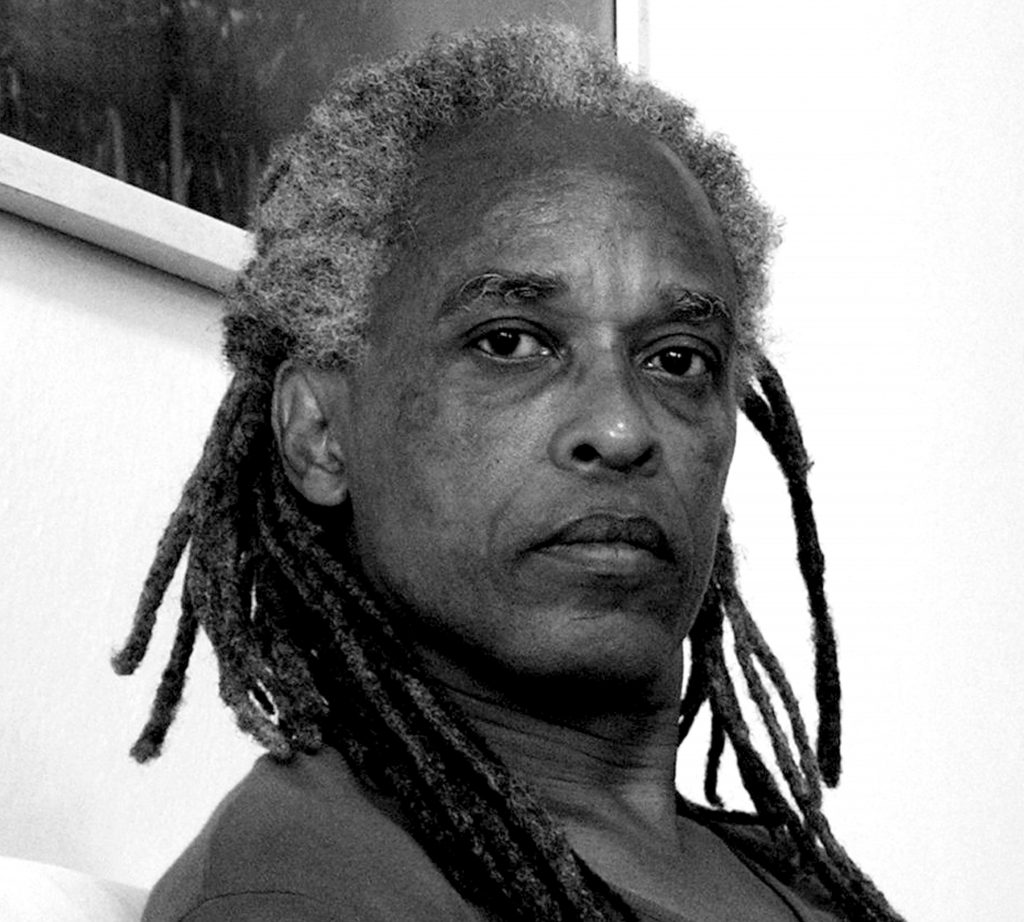
René Peña
White things, 2001